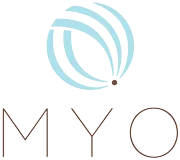Lauren’s Approach to Treatment
Acupuncture is part of a comprehensive treatment system which can address or support treatment for a wide range of conditions.
According to Chinese medical theory, the life energy flowing through the body (Qi, pronounced chee) can be influenced and balanced by stimulating specific points on the body. These points are located along channels of energy known as meridians that connect all of our major organs. Illness arises when the cyclical flow of Qi in the meridians becomes unbalanced or is blocked.
From a Western medical standpoint, Acupuncture is explained as the stimulation of specific points located near or on the surface of the skin which have the ability to alter various biochemical and physiological conditions in order to achieve the desired effect. Acupuncture points are areas of designated electrical sensitivity. Inserting needles at these points stimulates various sensory receptors that, in turn, stimulate nerves that transmit impulses to the hypothalamic-pituitary system at the base of the brain. The hypothalamus-pituitary glands are responsible for releasing neurotransmitters and endorphins, the body’s natural pain-killing hormones. It is estimated that endorphins are 200 times more potent than morphine. Endorphins also play a big role in the functioning of the hormonal system. This is why acupuncture works well for back pain and arthritis and also for P.M.S. and infertility.
The substances released as a result of acupuncture not only relax the whole body, they regulate serotonin in the brain which plays a role in human and animal disposition. This is why depression is often treated with acupuncture. Some of the physiological effects observed throughout the body include increased circulation, decreased inflammation, relief from pain, relief of muscle spasms and increased T-cell count which stimulates the immune system.
Acupuncture can treat a variety of conditions and can even be used as a complement to Western medicine treatments, such as chemotherapy and radiation. The World Health Organization and the National Institutes of Health have published meta-analyses of the conditions shown to be successfully treated by acupuncture in clinical studies, but acupuncture is not limited to the lists complied by the WHO or the NIH.
These are only some of the symptoms and conditions that can be helped by acupuncture and herbal therapy:
- Eye, Ear, Nose, Throat, and Teeth – Tired Eyes, Poor Vision, Earaches, Sore Throat, Toothaches, TMJ
- Respiratory – Common Cold & Flu treatment and prevention, Bronchitis, Asthma, Allergies, Sinusitis
- Gastrointestinal – Indigestion, Acid Reflux, Nausea, Abdominal Pain, Bloating, Constipation, Diarrhea, IBS
- Cardiovascular – Hypertension, Palpitations, Poor Circulation
- Gynecological – Infertility, PMS, Menstrual Irregularity, Painful Menses, Menopause Symptoms
- Musculoskeletal – Muscle Pain, Cramping & Weakness in: Neck, Shoulders, Arms, Hands, Fingers, Knees, Legs & Feet, Back Pain, Sciatica, Sports Injuries
- Emotional – Depression, Anxiety, Stress, Insomnia, Mood Swings, Nervousness
- Neurological – Headache, Migraine, Facial Pain and Tremor, Post-Stroke Residuals
- Other Benefits – Increases Energy and Immunity, Healthy Skin, Promotes Health and Wellness, Mental & Physical Relaxation, Smoking Cessation and other Addictions


